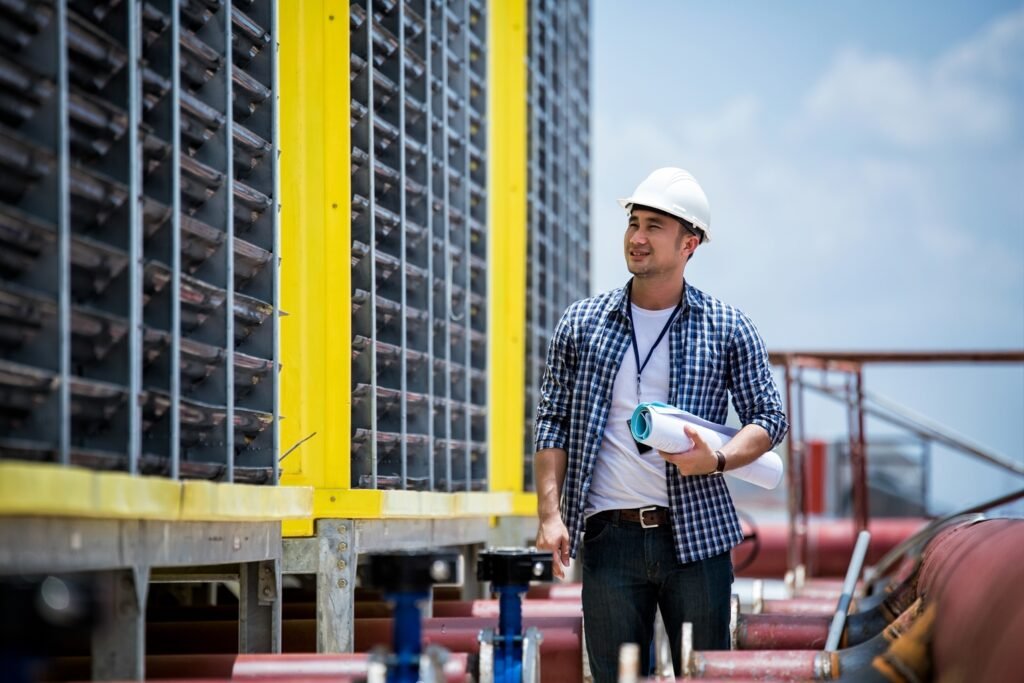What is MEP and scope of MEP engineering
Introduction to MEP Engineering:
MEP (Mechanical, Electrical, and Plumbing) engineering is a cornerstone of the construction and design industry, ensuring that buildings operate efficiently, sustainably, and safely. In this article we will also talk about scope of MEP engineering
Mechanical systems, encompassing heating, ventilation, and air conditioning (HVAC), create optimal indoor conditions, prioritizing comfort. Electrical systems oversee power distribution, lighting, and safety measures. Plumbing systems manage water supply, drainage, and sewage systems, guaranteeing clean water and efficient waste disposal.
Significance:
- Occupant Comfort and Safety: MEP systems create comfortable environments and provide essential safety measures.
- Energy Efficiency: MEP engineers design systems that reduce energy consumption, contributing to sustainability and cost-efficiency.
- Regulatory Compliance: Adherence to building codes is fundamental for safety and functionality, a primary responsibility of MEP engineers.
- Integration in Design: MEP engineering collaborates closely with architects and structural engineers to ensure seamless integration into the building design.
- Cost-Effectiveness: Well-planned MEP systems lead to lower long-term operating costs, enhancing overall financial sustainability.
Roles and Responsibilities of MEP Engineers:
MEP (Mechanical, Electrical, and Plumbing) engineers are the architects behind the seamless functioning of buildings. Their key tasks encompass the planning, design, and maintenance of critical systems that ensure a structure operates efficiently and safely.
- Design Expertise: MEP engineers are tasked with creating detailed plans for mechanical, electrical, and plumbing systems. This involves calculations, layouts, and schematics to ensure optimal functionality and safety.
- Energy Efficiency: They play a pivotal role in designing systems that minimize energy consumption, thus enhancing the sustainability and cost-efficiency of a building.
- Regulatory Adherence: MEP engineers are responsible for ensuring that all systems meet local building codes and regulations. Compliance is crucial for safety and operational performance.
- Collaboration: Close collaboration with architects and structural engineers is essential to seamlessly integrate MEP systems into the building design, ensuring aesthetic appeal and efficiency.

Scope of Mechanical Systems in MEP:
Mechanical systems in MEP (Mechanical, Electrical, and Plumbing) engineering are the heartbeat of a building. These systems are responsible for creating indoor environments that are comfortable, safe, and conducive to the well-being of occupants. The scope of mechanical systems encompasses various crucial aspects:
HVAC (Heating, Ventilation, and Air Conditioning):
- Heating systems ensure buildings remain warm and cozy during cold weather, while cooling systems maintain a comfortable temperature in hot weather.
- Ventilation systems provide fresh air and remove stale air, promoting healthy indoor air quality.
- Air conditioning systems maintain optimal temperature and humidity levels, ensuring occupant comfort.
Energy Efficiency:
- Mechanical engineers focus on designing energy-efficient HVAC systems, using state-of-the-art technologies and innovative design principles to minimize energy consumption. This not only reduces utility costs but also lessens the building’s environmental impact.
Maintenance and Monitoring:
- Beyond design and installation, mechanical engineers are involved in planning for ongoing maintenance. They ensure that heating, cooling, and ventilation systems are regularly serviced to maintain optimal performance.

The Future of MEP Engineering:
The field of MEP (Mechanical, Electrical, and Plumbing) engineering is on the cusp of transformative changes and exciting innovations that will shape the way buildings are designed, constructed, and operated. Here’s a glimpse into the future of MEP engineering:
1. Integration of Smart Technologies: MEP engineering will increasingly incorporate smart technologies into building systems. This includes IoT (Internet of Things) devices and sensors that provide real-time data on energy usage, occupancy, and system performance. These technologies will enable more efficient and responsive building management, allowing for automatic adjustments to lighting, temperature, and ventilation based on user needs and environmental conditions.
2. Energy Efficiency and Sustainability: The emphasis on energy efficiency and sustainability will continue to grow. MEP engineers will be at the forefront of designing systems that reduce energy consumption, lower carbon footprints, and maximize the use of renewable energy sources. Green building practices, like passive design and energy recovery systems, will become standard.
3. Advanced Building Information Modeling (BIM): BIM is already a valuable tool for MEP engineers, but its use will become even more sophisticated. Future applications will include real-time collaboration with architects and structural engineers, as well as 4D and 5D BIM, which integrate time and cost aspects, leading to more efficient project management.
4. Health and Well-being: The post-pandemic world has highlighted the importance of indoor air quality and occupant well-being. MEP systems will prioritize designs that enhance indoor air quality and reduce disease transmission risks. This may involve advanced filtration systems, better ventilation, and touchless technology.
5. Electrification and Decarbonization: The shift toward electrification and decarbonization will impact MEP engineering. MEP engineers will be tasked with designing electrical systems that replace traditional fossil-fuel-based systems, such as gas heating, with electric alternatives powered by renewable energy sources.
6. Continuing Education and Training: As technology and sustainable practices evolve, MEP engineers will need to continuously update their skills and knowledge. Training in new technologies, sustainability practices, and evolving regulations will be critical for staying competitive in the field.

MEP Engineering Career Opportunities:
For aspiring MEP (Mechanical, Electrical, and Plumbing) engineers, a world of diverse career opportunities awaits in a field that is experiencing sustained growth and demand. Here’s a look at the career prospects for MEP engineers, supported by facts and data:
1. Strong Industry Demand:
The construction industry, driven by urbanization and infrastructure development, continues to thrive. According to the U.S. Bureau of Labor Statistics, employment of mechanical and electrical engineers is projected to grow by 8% and 9%, respectively, from 2020 to 2030, both faster than the average for all occupations.
2. Broad Specialization:
MEP engineering offers a range of specializations. Mechanical engineers can focus on HVAC, plumbing, or fire protection systems, while electrical engineers can specialize in power distribution, lighting, or security systems.
3. Sustainability and Green Building:
With an increasing focus on sustainability and green building practices, MEP engineers who are well-versed in energy-efficient designs, renewable energy integration, and sustainable construction practices are in high demand. The U.S. Green Building Council’s Leadership in Energy and Environmental Design (LEED) certification has become a standard for environmentally responsible buildings.
4. Building Information Modeling (BIM):
Proficiency in BIM, a digital modeling tool for building design and construction, is increasingly sought after. MEP engineers who can effectively use BIM for system integration and coordination are highly valuable.
If you’re inspired to master this dynamic field and become part of a movement to create greener, more efficient buildings, we invite you to consider Augmintech’s MEP Program (https://augmintech.com/courses/post-graduate-program-in-mep-design-and-drafting/). It’s a remarkable resource for learners like you who are eager to delve deeper into this vital discipline and make a real impact in the world of construction.
